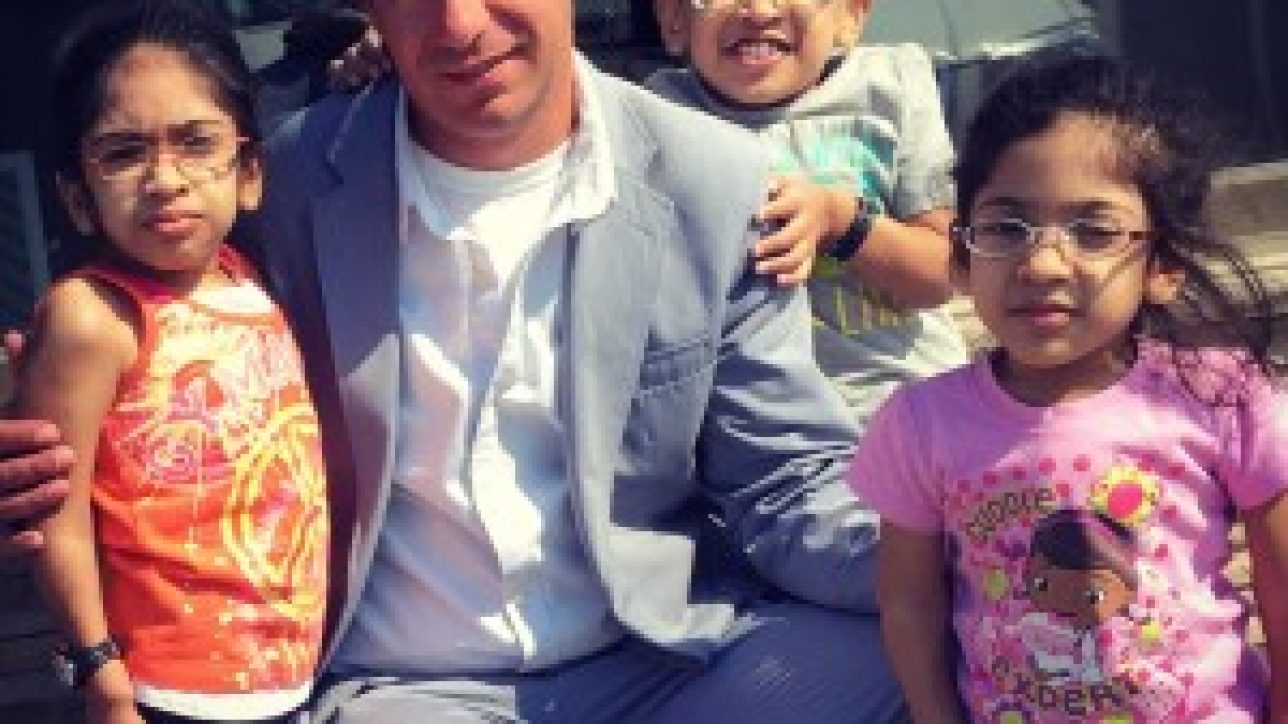Children Diagnosed With Ultra-Rare Condition; Treatment Already Being Funded In Ontario and Quebec
(Sept. 14, 2015) The Saskatchewan Ministry of Health is currently considering an application for exceptional funding of a life-sustaining treatment required by three siblings from Saskatoon. 8 year-old Sara Amir, along with her siblings Khadija, 10 and Muhammad, 12 have been diagnosed with Morquio Syndrome, and all three require the life-sustaining treatment immediately in order to halt further progression of this devastating disease. The Saskatchewan Ministry of Health received their application to begin treatment with Vimizim, an enzyme replacement therapy approved by Health Canada in July 2014, seven months ago. A review of the application has just been initiated and a decision is expected in the coming weeks.
The children suffer from a rare enzyme deficiency called MPS IVA (also known as Morquio A Syndrome). Sufferers of Morquio Syndrome lack an enzyme in their blood that breaks down cellular waste in the body called glycosaminoglycan (GAG). These GAGs build up in the bones, tissues, organs, and muscles of affected individuals and lead to many devastating symptoms including heart and airway disease, corneal clouding, impaired mobility, shortened stature, and premature death.
While there is no known cure for Morquio Syndrome, a treatment does exist. Vimizim is an Enzyme-Replacement Therapy (ERT) designed to provide patients with a synthetic version of the enzyme they are lacking by infusing small doses into the patient’s bloodstream on a weekly basis. The treatment slows down or halts the progression of the disease in patients, improves endurance, walking distance, breathing problems, and provides other benefits to sufferers that dramatically improve their quality and length of life. International experts and a Canadian Panel of Genetics Specialists have all recommended Vimizim as the front-line treatment for Morquio Syndrome. It was approved by Health Canada in July 2014, and has been reimbursed for use by patients in Ontario and Quebec. Recently, the National Institute for Health and Care Excellence (NICE) recommended reimbursement for all patients suffering from Morquio Syndrome throughout the UK.
Andrew McFadyen, Executive Director of The Isaac Foundation, an advocacy, research, and family support organization that specializes in MPS related diseases, is urging Health Minister Dustin Duncan and Premier Brad Wall to expedite their decision so the children can get the immediate help they need. Since the application was submitted in March, McFadyen has met with Minister Duncan twice to present all of the expert opinion and Canadian and International data that exists regarding the treatment. “Minister Duncan has been privy to all opinions and guidance from the best medical minds across the globe. All of them have recommended this treatment for these kids and I’m confident that a positive decision will be returned in a speedy fashion.”
Though hopeful of a positive outcome for the family, McFadyen can’t help but feel frustrated by the length of time it’s taken to render a decision. “The Minister has had this file for over 7 months, and the initial request for therapy was submitted 19 months ago. Saskatchewan already pays for every other available treatment for MPS Diseases – MPS I, MPS II, MPS VI. This treatment does the exact same thing – saves lives. With the UK and the US already ensuring access to this treatment, there is ample evidence available to help them with their decision. We’ve given them everything they need – it’s time to take action and save these kids.”
Jamie Myrah, Executive Director of the Canadian MPS Society, a national patient association that serves those affected by MPS and related lysosomal diseases, couldn’t agree more. “The Canadian Expert Panel and the International Guidelines for treating Morquio A Syndrome both call for treatment to begin as soon as possible to stave off the devastating effects of this disease. With every day that passes, the chance that irreversible symptoms will appear increases. I am hopeful that the Saskatchewan government won’t allow bureaucracy to have a negative impact of the lives of these children and am therefore confident that a positive decision will be returned soon.”
Myrah and McFadyen both note how impactful the treatment has been for patients already receiving therapy in Canada and in most other developed countries throughout the world. Myrah states, “We are seeing kids improve dramatically because of this treatment – kids’ internal organs reducing back down to a normal size, rates of growth increasing, heart function improved, walking distance increased and the use of mobility aids reduced. Until recently, only supportive care that treats the symptoms of the disease was available to patients, including medication, multiple surgeries, and ongoing occupational and physical therapy. By delaying access to the first and only pharmaceutical treatment option available, governments are leaving patients dependent on supportive therapies that do not address the underlying cause of this severely debilitating disorder. We know this works and we know it changes lives.”
McFadyen adds “We have a video of a 17 year old girl prior to starting treatment and she can’t walk more than 10 steps without having to stop. She’s in agony and it’s heartbreaking to see. After 12 weeks on therapy, she’s happy and walking long distances normally. I’m hopeful we can ensure the same opportunity is given to the Akhter children. It’s the role of government to protect and ensure fair and equitable access to Health Care for all Canadians –regardless of whether they are suffering from a rare disease or not – and we’re calling on this government to take action and save the lives of these children now. They can’t afford to wait.”
# # #
For more information about this topic, or to schedule an interview to discuss, please call Andrew at 613-328-9136 or email Andrew at mcfadyena@me.com.

